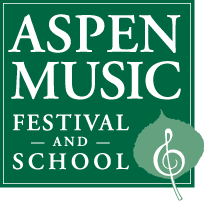« Response to Sam Bergman | Main | Oh God, Another Sports Analogy »
July 26, 2006
Five Stars
by Frank J. OteriAndrew Druckenbrod makes several good points when he explains why Americans distrust freebies. One that might get overlooked in all of this is the 5-star restaurant paradigm he describes. Perhaps we should start calling classical music "5-star music"?! Where the parallel breaks down is that the 5-star restaurants don't complain that fewer people eat at them than, say, at McDonald's. Yet the fancy eateries are happy with the number of customers they have since that small number can support what they do. On the other hand, so many people who care about classical music (myself included) complain that so few people are listening to it partly because we are worried that without greater audiences there will be no way to economically support this music in the future.
Classical music, particularly orchestral music and opera, costs a helluva lot more to make (composing time, copying time and part preparation, the number of people involved in performing it, rehearsal time, logistics, etc) than almost any other kind of music (although pop production values and costs for recordings and various arena concerts for the most part trump those of classical music). So, more money needs to be generated in order to make classical music happen. Back in the days of courtly patronage, folks like the Esterhazys or Frederick the Great could have orchestras at their disposal—although they certainly weren't 100-piece bands—but remember far fewer people listened to this music then than they do now. Yes, free concerts are frequently not aesthetically rewarding experiences—and I'm not sure the best way to introduce potential new 21st century American fans to this music is through the inevitable cavalcade of 18th and 19th century European warhorses (Brandenburgs, Mozart, 1812 Overture) that Janelle Gelfand cited earlier in this chain. But, what we really need are other kinds of exposure for this music to grow an audience (if that's ultimately what we want to have happen): radio, TV, schools, a presence in society beyond the recording and concert experiences, free or otherwise. You hear the latest pop tunes every time you're in a clothing store. You pretty much only hear classical music—old and usually less than stimulating classical music—in railroad and bus terminals; allegedly the program was started to keep derelicts out of these public spaces, and it worked...
Yet despite all of this, classical music, through keeping the prices relatively low compared to the cost outlay of making this music, has still managed to bring "5-star" aesthetics to many denizens of our great fast food nation. Go figure.
Posted by foteri at July 26, 2006 08:58 AM
COMMENTS
Post a comment
Tell A Friend


